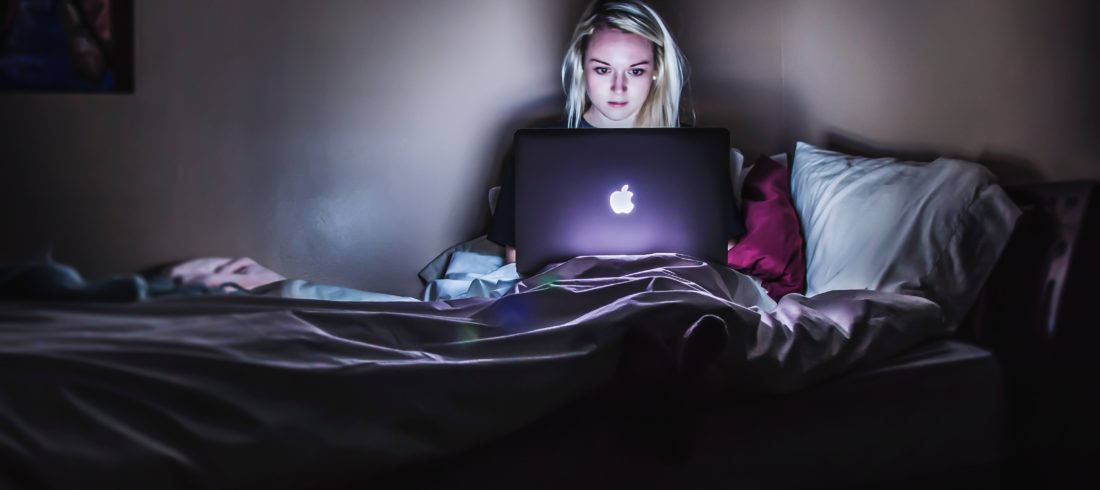You’ve heard the old adage, “everything in moderation.” That’s especially true of time spent with digital devices. Studies show an overuse of devices is putting a strain on our mental and physical health. And in response, people are turning to “digital detoxes” to help cut the cord.
There isn’t one way to go about a detox, and it largely depends on the person. With the New Year around the corner, why not make it a resolution to see if a digital detox is right for you?
Below is a brief look at the effects of prolonged use of digital devices.
Screen Time – How Much Is Too Much?
If it feels like you can’t get away from media – and the screens that stream it – you’re probably right. According to a report by Nielson, American adults spend a whopping 11 hours per day listening to, watching, reading or interacting with media, both active – such as scrolling on a smartphone – and passive – a television playing the news in the background of an airport.
Among forms of media that we view, live and time-shifted TV – think of Hulu and streaming a show after it airs – is the most consumed and accounts for 43% of an adult’s daily time with media. Next most consumed are smartphones (21%), radio (16%), tablets (7%), TV-connected devices (7%) and internet on a computer (6%). Age is a factor in viewing habits. In general, younger age groups spend more time on a smartphone than with a TV, while it’s the opposite for older groups.
It gets a bit tricky to count how many hours a day we spend on our phones. A study took a look at data from a bunch of sources and reported the average American adult spends over four hours a day on their smartphones. Nearly half of that is spent on YouTube, Facebook, Snapchat, Instagram and Twitter.
Mental Well-being
Yup, it’s official: smartphones can leave us with a bad feeling. Reported in the Harvard Business Review, social media may take away from in-person relationships, meaningful activities and boost sedentary behavior, among other effects. Above all, social media – in this case, Facebook – has a negative effect on a person’s overall well-being, including mental health. Researchers found liking posts or clicking on links, “predicted a subsequent reduction in self-reported physical health, mental health and life satisfaction.”
Screens Affect Our Bodies, Sleep Rhythms And More
Long-term use of a digital device is a strain on our bodies, and it may even make us grow horns! A study of young people by the University of the Sunshine Coast in Queensland, Australia found a horn-like bone in the back of their skulls. Evidence suggests these bones may be from “prolonged use of smartphones and other handheld devices,” the Washington Post reports.
Our eyes are paying a price, too. Smartphones, tablets and laptops give off ”blue-light,” which is good in the daylight hours and promotes attention, reaction time and mood. But it can have an adverse effect at night. Studies show blue-light can lower a body’s output of melatonin and affect your sleep rhythm.
Digital Eye Strain & Blue Light: Bad For Adults, Very Bad For Children
Staring at a tiny screen can do harm to a person’s vision. What’s called “Computer Vision Syndrome” is a set of eye and vision-related issues that are a result of long-term use of a computer, tablet, e-reader or cell phone. Also called digital eye strain, it includes:
- Eye strain
- Headaches
- Blurred vision
- Dry eyes
- Neck and shoulder pain
Digital eye strain poses an added threat for children. Today’s electronic devices also give off high-energy, short-wavelength, blue and violet light, which may affect vision and even prematurely age the eyes, according to the American Optometric Association. Early research shows that it can lead to serious conditions later in life, such as age-related macular degeneration (AMD).
Take a Digital Detox
There isn’t one way to embark on a digital detox. And if you don’t have the time or money to take a trip into a remote-wifi free locale, there are a handful of free ways to cleanse your mind and body of digital’s negative effects.
Plug “digital detox” into Google, and it’s clear that there are lots of ways to go about your own detox. Of course, the best way to go forward is to find a path that’s tailored to your particular situation and needs.
If you’re curious if you or your child’s screen use is having a negative effect, schedule an appointment with a pediatrician or primary care doctor at Premier Medical Group.

